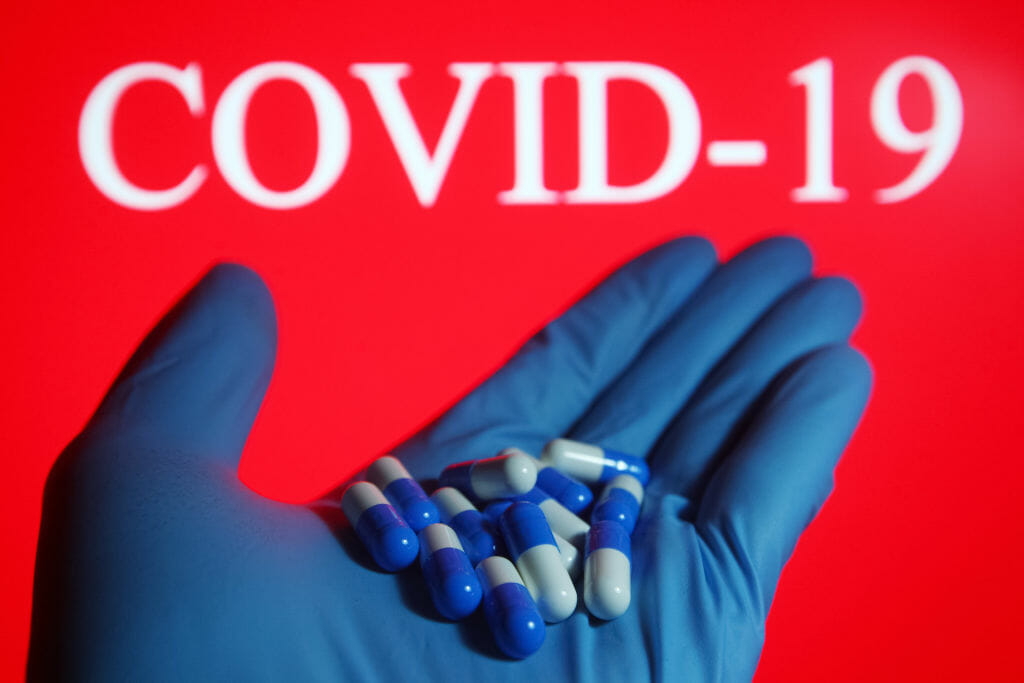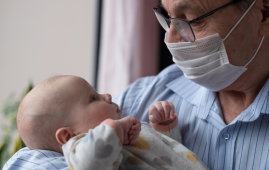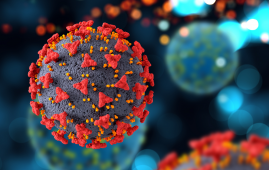

Recent Food and Drug Administration (FDA) emergency use authorization for two antiviral COVID-19 pills was considered a crucial turning point in the battle against the pandemic. Much like the monoclonal antibody therapies they were designed to augment, however, their rollout has been plagued by doubts around health equity.
The pills, Merck’s molnupiravir and Pfizer’s Paxlovid, were designed to be an easy, accessible way to curb pandemic-related hospitalizations and deaths. Both orals were shown to be effective in reducing the severity of the illness. They’re also less cumbersome to administer than the monoclonal antibodies used thus far to treat patients, thus bolstering a COVID-19 armamentarium whose centerpiece remains the available vaccines.
The federal government has ordered some 20 million treatment courses of Paxlovid, and Merck has committed to providing 3.1 courses of molnupiravir across the U.S. But whether those courses are reaching communities with the highest risk of infection, hospitalization and death is not guaranteed, according to some experts.
The medications are “another tool being deployed as part of our general toolkit against COVID-19,” observed Natasha Williams, associate professor in the Department of Population Health at NYU Langone.
“But in this rollout,” she cautioned, “it’s absolutely critical for us to think about how to protect communities in a way that is equitable. We have to ensure that patients have access, we’re meeting at-risk communities where they are, and we’re eliminating language barriers, transportation barriers, and so forth.”
Williams noted that President Biden’s pandemic response has involved commitments to health equity. Those include creation of the Health Equity Task Force, which has invested in things like vaccine confidence in marginalized communities.
Yet despite some of that progress, disparities persist. Recent data released by the Centers for Disease Control and Prevention (CDC) in January showed that racial and ethnic disparities remained when it came to the use of monoclonal antibody treatment. Among the 41 healthcare systems studied, researchers found that Black, Asian and Hispanic patients infected with COVID-19 were less likely to utilize treatment than their white counterparts.
In an effort to consider health equity in the COVID-19 pill rollout, the FDA provided recommendations for healthcare providers to keep health disparities in mind when prescribing the medication. Several states – Utah, Minnesota and New York among them – created guidance on considering race or ethnicity as a risk factor for COVID-19 in receiving treatments for the virus.
The guidance is non-binding and just a small step in ensuring at-risk communities are prioritized. Despite high demand for the pills, their debut has also been hampered by shortages, as well as a less-than-smooth process for patient access.
Currently, under the FDA’s emergency use authorization, only doctors and certain healthcare providers can prescribe the pills, limiting the places where people can get them. Patients are expected to go to a testing site, get their prescription and then proceed to a pharmacy for pickup, a multi-step effort which could prove difficult for people with access issues like a lack of transportation.
“Some of the ways that we know we could make this [more] accessible is through different partnerships with community organizations – civil rights, faith-based organizations or our local safety net providers,” Williams continued. “It’s a matter of thinking about what are these points of accessibility, and where are we eliminating these potential barriers.”
Some public health experts have pointed to the need for pharmacists to have more prescribing power with the new pills. Pharmacies have been touted as being central to the Biden administration’s COVID-19 response in general, often serving as the first point-of-care for vaccinations and other health concerns during the pandemic, and being integral to reaching marginalized communities. But they currently can’t directly prescribe the authorized pills to patients.
Williams called on state and local governments, as well as healthcare providers, to center health equity in the pills’ introduction – and in all future interventions developed to battle the pandemic.
“It’s important for people to recognize that [health equity] is a long-term commitment, and as we learn more about the science our strategies might also need to evolve,” she concluded. “We need to have a long-term strategy that has equity at its core, in which equity really becomes the infrastructure for any response – whether it’s the COVID-19 pandemic or future pandemics.”
more recommended stories
 Enhanced Immune Response in New COVID-19 Vaccines
Enhanced Immune Response in New COVID-19 VaccinesAn improved vaccination offers an enhanced.
 Neoadjuvant Chemotherapy Boosts Ovarian Cancer
Neoadjuvant Chemotherapy Boosts Ovarian CancerDuring the COVID-19 pandemic, US women.
 Nasal Cellular Age response to Covid 19
Nasal Cellular Age response to Covid 19Variations in Nasal Cellular Age Response.
 Phone Addiction linked with Insomnia: New Study Insights
Phone Addiction linked with Insomnia: New Study InsightsIn addition to confirming the well-established.
 Abzymes Unveiled: Understanding COVID-19’s Impact
Abzymes Unveiled: Understanding COVID-19’s ImpactA possible solution for some of.
 COVID-19 Over-the-Counter Medication Considerations
COVID-19 Over-the-Counter Medication ConsiderationsThe COVID-19 virus can cause symptoms.
 Effects of the COVID-19 Pandemic on responses to Therapy for Anxiety
Effects of the COVID-19 Pandemic on responses to Therapy for AnxietyThe commencement of the COVID-19 pandemic.
 Breastfeeding Post-COVID-19 Boosters passes Antibodies to Babies
Breastfeeding Post-COVID-19 Boosters passes Antibodies to BabiesLactating mothers who receive the COVID-19.
 Pandemic Babies Exhibit Changed Gut Microbiome and Reduced Allergy Rates
Pandemic Babies Exhibit Changed Gut Microbiome and Reduced Allergy RatesPandemic babies exhibit developmental trajectory of.
 IFN-γ as a potential biomarker for Long COVID
IFN-γ as a potential biomarker for Long COVIDA University of Cambridge-led study identifies.

Leave a Comment